In today’s increasingly distributed workforce, effective IT management is no longer confined to a single physical location. Remote IT management software has become indispensable, allowing IT professionals to monitor, manage, and support devices and networks from anywhere with an internet connection. This comprehensive guide delves into the intricacies of remote IT management software, exploring its features, benefits, considerations, and best practices.
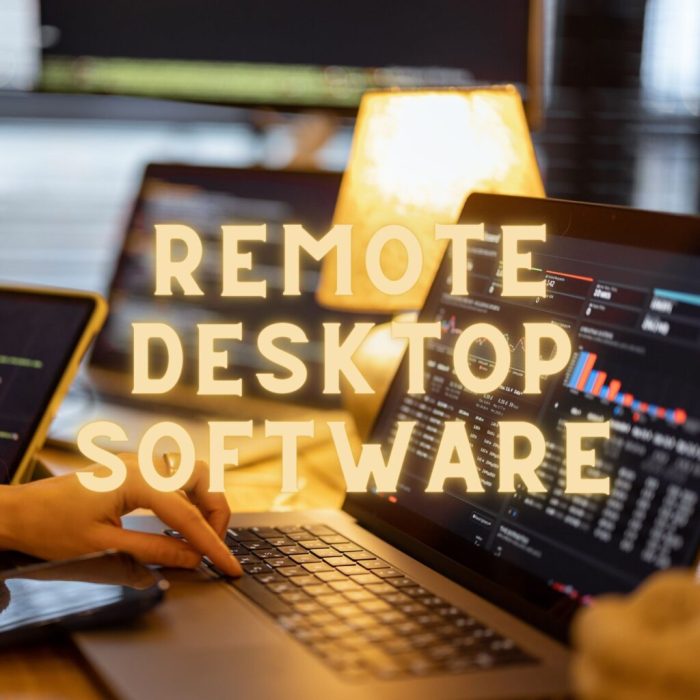
Source: techridge.in
We’ll cover various aspects, from choosing the right software to addressing security concerns, ultimately empowering you to make informed decisions for your organization.
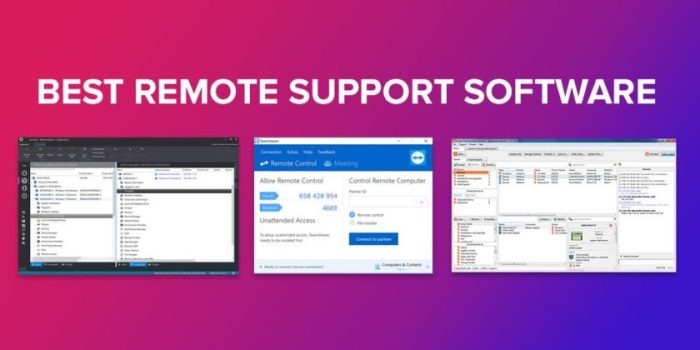
Source: twitgoo.com
Understanding Remote IT Management Software
Remote IT management software, also known as remote monitoring and management (RMM) software, provides a centralized platform for overseeing and controlling various aspects of an IT infrastructure. This encompasses tasks such as:
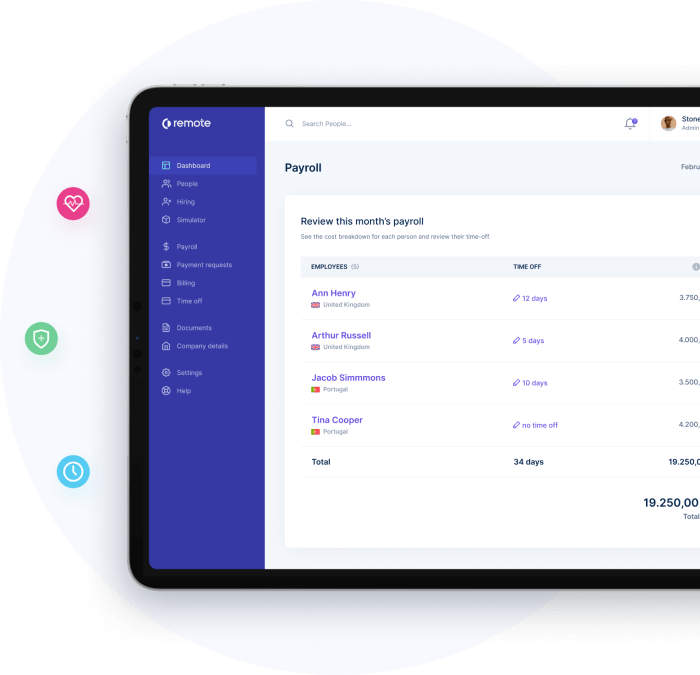
Source: imgix.net
- Remote access and control: Gaining secure access to end-user devices to troubleshoot issues, install software, or perform other administrative tasks.
- Network monitoring: Tracking network performance, identifying bottlenecks, and proactively addressing potential problems.
- Device monitoring: Monitoring the health and performance of individual devices, including computers, servers, and mobile devices.
- Patch management: Automating the deployment of software updates and security patches to minimize vulnerabilities.
- Security management: Implementing and enforcing security policies, monitoring for threats, and responding to security incidents.
- Help desk and ticketing systems: Managing and tracking IT support requests, ensuring timely resolution of issues.
- Inventory management: Maintaining a comprehensive inventory of all IT assets within the organization.
Key Features of Effective Remote IT Management Software
The best remote IT management solutions offer a robust suite of features tailored to meet diverse organizational needs. Some essential features include:
Remote Access and Control
Securely access and control end-user devices remotely, enabling efficient troubleshooting and support. Look for solutions that support various operating systems and devices, including Windows, macOS, Linux, iOS, and Android.
Network Monitoring and Alerting
Real-time monitoring of network performance, including bandwidth utilization, latency, and uptime. Automated alerts notify administrators of potential issues, enabling proactive intervention.
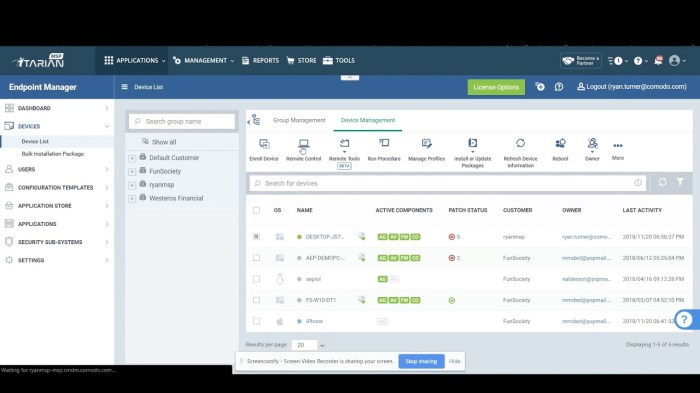
Source: goodfirms.co
Device Monitoring and Management
Monitor the health and performance of individual devices, identifying potential problems before they impact users. Features like hardware monitoring, software inventory, and performance metrics are crucial.
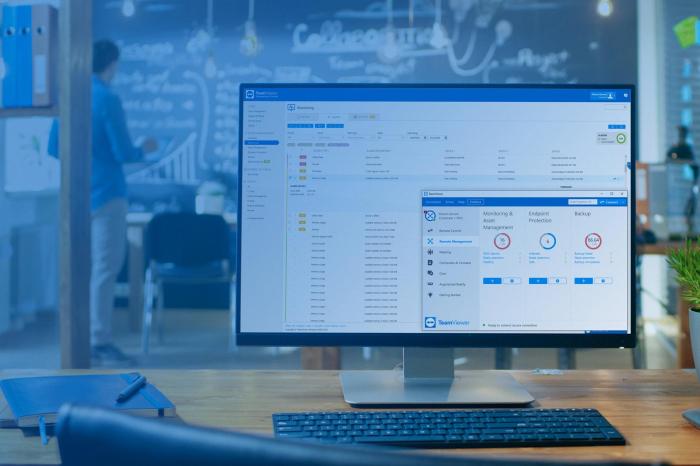
Source: devicemag.com
Automated Patch Management
Automate the deployment of software updates and security patches, minimizing vulnerabilities and improving overall security posture. Centralized patching reduces the risk of human error and ensures consistent updates.

Source: investopedia.com
Security Management and Threat Detection, Remote it management software
Implement and enforce security policies, monitor for threats, and respond to security incidents. Features like antivirus integration, firewall management, and intrusion detection are essential.
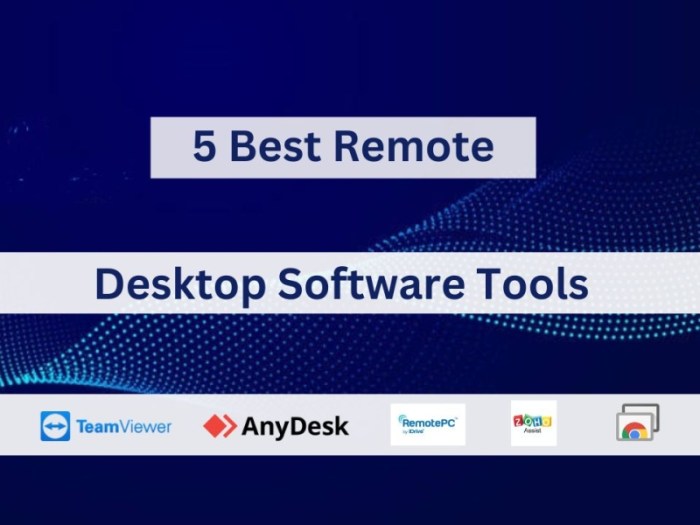
Source: ultimatemultimediatraining.net
Ticketing and Help Desk Integration
Streamline IT support by integrating with help desk systems. This allows for efficient tracking and resolution of support requests, improving user satisfaction.
Reporting and Analytics
Generate comprehensive reports on IT performance, security posture, and user activity. Data-driven insights enable informed decision-making and proactive improvements.
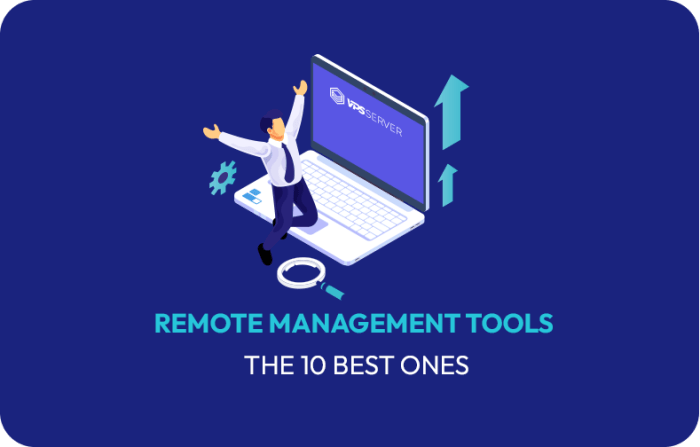
Source: vpsserver.com
Scalability and Flexibility
Choose software that can scale to meet the growing needs of your organization. Flexibility in terms of deployment options (cloud-based, on-premise, hybrid) is also important.
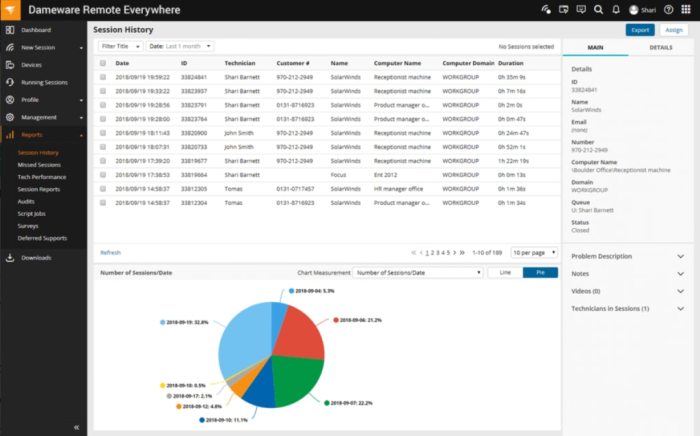
Source: dnsstuff.com
Benefits of Implementing Remote IT Management Software
Implementing remote IT management software offers numerous advantages for organizations of all sizes:
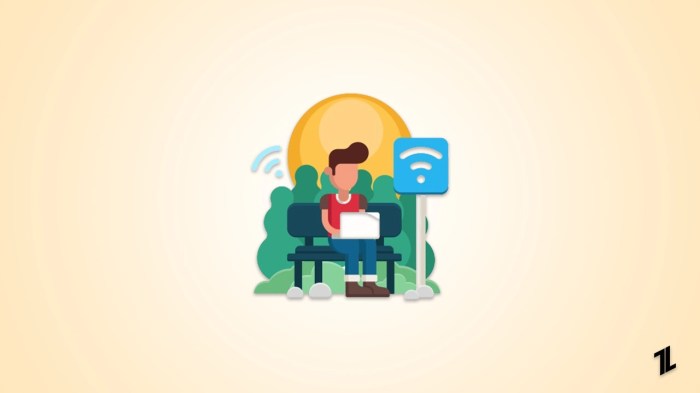
Source: tech-latest.com
- Improved efficiency and productivity: Streamline IT operations and reduce the time spent on routine tasks.
- Reduced IT costs: Minimize travel expenses and reduce the need for on-site support.
- Enhanced security: Proactively identify and address security vulnerabilities, reducing the risk of cyberattacks.
- Increased uptime and availability: Monitor and resolve issues proactively, minimizing downtime and maximizing system availability.
- Improved user satisfaction: Provide faster and more efficient IT support, enhancing user experience.
- Better compliance: Ensure compliance with relevant regulations and industry standards.
- Centralized management: Manage all IT assets from a single platform, simplifying administration.
Choosing the Right Remote IT Management Software
Selecting the appropriate software depends on several factors, including:
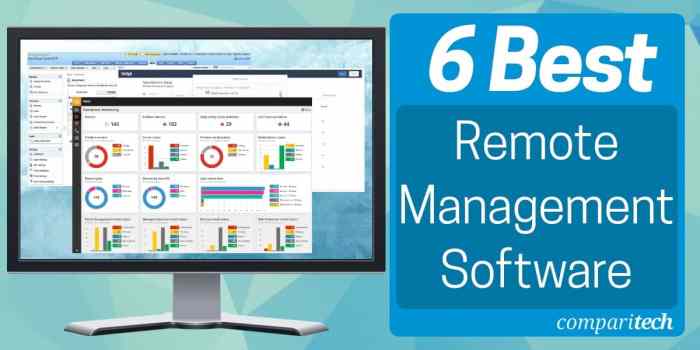
Source: comparitech.com
- Organization size and complexity: Small businesses may require simpler solutions, while larger enterprises may need more comprehensive platforms.
- Budget: Software pricing varies significantly, so it’s essential to find a solution that fits your budget.
- Required features: Identify the specific features you need based on your organization’s requirements.
- Integration capabilities: Ensure the software integrates with your existing IT infrastructure and tools.
- Scalability: Choose software that can grow with your organization.
- Vendor support: Select a vendor that provides reliable and responsive support.
Security Considerations for Remote IT Management
Security is paramount when using remote IT management software. Implement the following measures to mitigate risks:
- Strong passwords and multi-factor authentication: Protect access to the software and managed devices.
- Regular security updates: Keep the software and managed devices up-to-date with the latest security patches.
- Network segmentation: Isolate sensitive systems and data from the rest of the network.
- Access control: Implement granular access controls to restrict access to sensitive information.
- Regular security audits: Conduct regular security audits to identify and address potential vulnerabilities.
- Encryption: Utilize encryption to protect data in transit and at rest.
Frequently Asked Questions (FAQ): Remote It Management Software
- Q: What is the difference between RMM and PSA software?
A: RMM (Remote Monitoring and Management) focuses on the technical aspects of managing IT infrastructure, while PSA (Professional Services Automation) software handles the business side, such as ticketing, billing, and project management. Many solutions integrate both functionalities. - Q: Is remote IT management software secure?
A: Yes, when properly configured and managed. Robust security measures, such as strong authentication, encryption, and regular updates, are crucial to ensure security. - Q: How much does remote IT management software cost?
A: Pricing varies significantly depending on the features, number of devices managed, and vendor. Expect a range from affordable options for small businesses to enterprise-level solutions with higher price tags. - Q: Can I manage mobile devices with remote IT management software?
A: Yes, many modern RMM solutions support mobile device management (MDM), allowing for remote monitoring and control of smartphones and tablets. - Q: What are some popular remote IT management software options?
A: Popular options include ConnectWise Manage, Datto RMM, Kaseya VSA, and SolarWinds N-central. Researching specific features and comparing options is crucial for finding the best fit.
Conclusion
Remote IT management software is essential for organizations seeking to efficiently manage their IT infrastructure in today’s distributed work environment. By carefully considering your specific needs, choosing the right software, and implementing robust security measures, you can significantly improve your organization’s IT efficiency, security, and overall productivity.
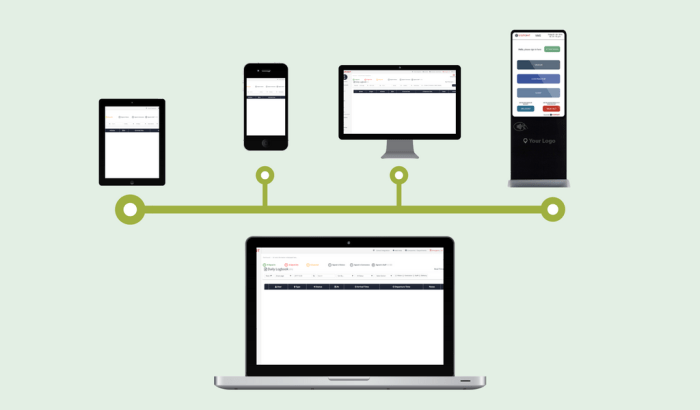
Source: lamasatech.com
Call to Action
Ready to streamline your IT management and enhance your organization’s efficiency? Explore the leading remote IT management software solutions available today and find the perfect fit for your needs. Start your free trial or request a demo now!
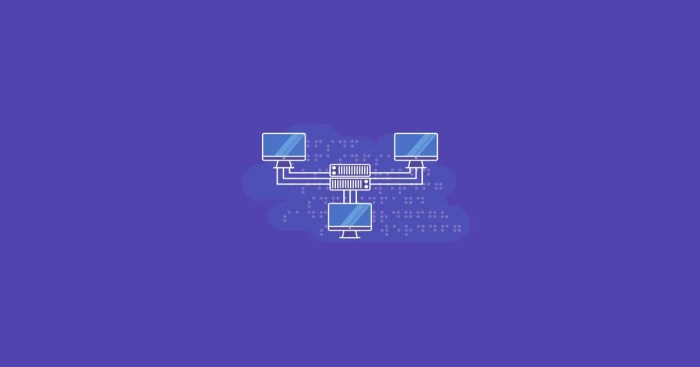
Source: saasworthy.com
FAQs
What are the security implications of using remote IT management software?
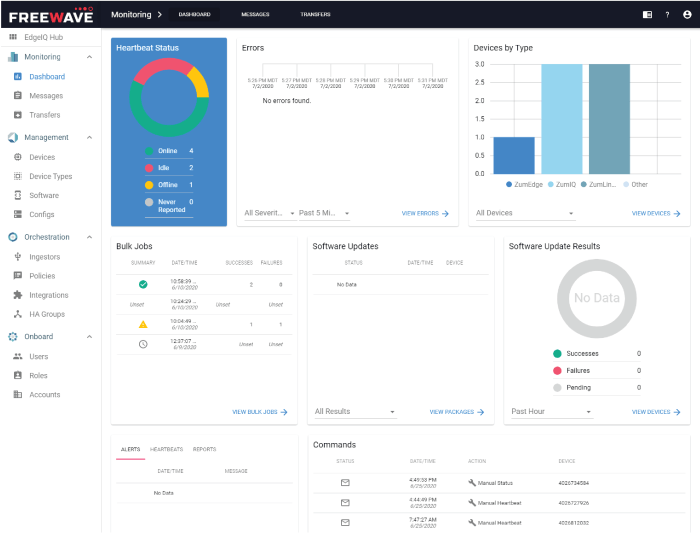
Source: freewave.com
Security is paramount. Choosing reputable vendors with robust security protocols is crucial. Implementing strong authentication methods, regular software updates, and access control policies are vital to mitigate risks.
How much does remote IT management software typically cost?
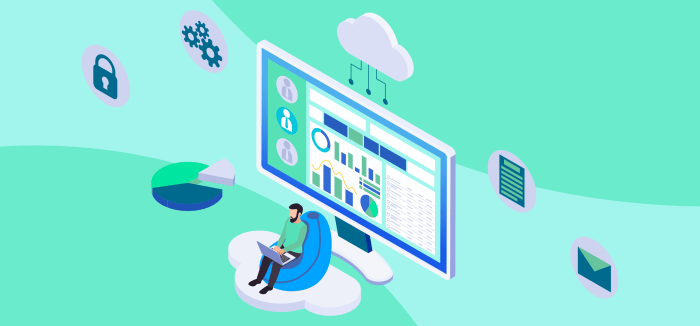
Source: squeezegrowth.com
Pricing varies greatly depending on features, scalability, and vendor. Costs range from affordable solutions for small businesses to enterprise-level packages with significant investment.
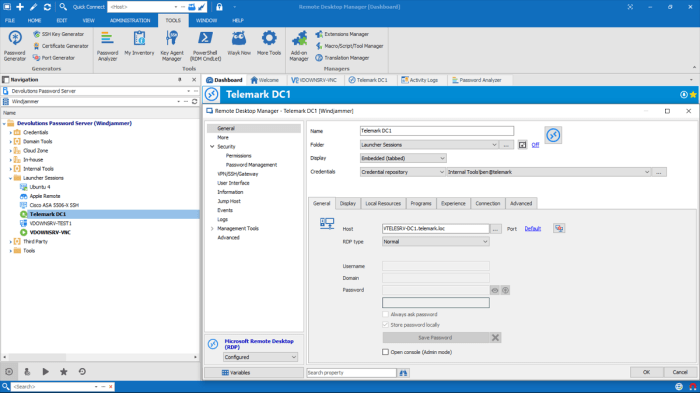
Source: comparasoftware.com
What are the key differences between cloud-based and on-premise solutions?
Cloud-based solutions offer accessibility and scalability, while on-premise solutions provide greater control and customization but require more internal infrastructure management.
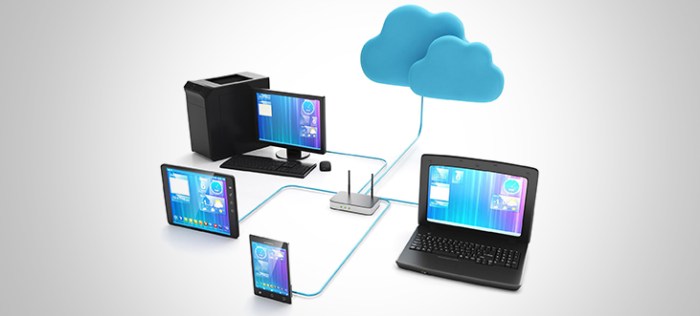
Source: comodo.com
How can I choose the right remote IT management software for my business?
Consider factors like your budget, the size and complexity of your IT infrastructure, the number of users, and the specific features you need. A thorough evaluation of different vendors and their offerings is recommended.
